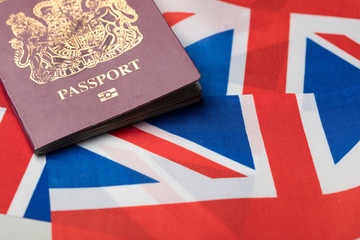If – as appears more and more likely – the UK leaves the EU on March 29 without a deal, all persons travelling to the mainland will be subject to Schengen rules means they could be turned back at the border or prevented from travelling altogether if criteria are not met.
British citizens traveling to the EU may need visas in the future. Bilateral agreement is needed. The EU has conditionally agreed to grant UK citizens the right to enter the EU without a visa for short-term stays, provided that the UK offers reciprocal rights to their citizens. If the UK does not reciprocate and there is no agreement, UK citizens will have to apply for a Schengen visa, a time-consuming and labourious process.
It is anticipated that up to two million Britons may be affected by this rule, and the problem has been exacerbated because of recent revelations by the government that a further 1.5 million passport holders with up to 15 months validity could also be turned away. Those affected are being told to renew their passports by the end of the business day on Friday to ensure that their documentation is in order by March 29. The Passport Office is expected to be inundated with applications from Britons fearing their travel plans could be disrupted.
Travellers will be required to be in possession of passports that are valid for at least three more months, and issued within the last ten years on March 29. Until recently, UK citizens who renewed their passports before the expiration date could have up to nine months of the remaining validity added to their new travel document. In this instance however, any extra months added to a passport that is more than ten years old may not count towards the six month requirement after a no deal Brexit. This means some persons with up to 15 months left on their passport could be denied entry to the EU. A minimum of two blank pages in a passport will also be required.
A Home Office spokesman noted that if there is no deal, new rules would apply when travelling on a British passport to many European countries and some people may need to renew their passport earlier than planned and recommended applying for a new passport before travelling to the countries affected in the event a passport does not meet the requirements.
If it is decided that UK citizens will not need a visa for short-term stays, they will still have to apply for travel authorisation once the European Travel Information and Authorisation System, due to come into force from 2021, is established. This is not a visa per se, but does require those intending to enter the Schengen area to register in advance and pay a fee of €7.
Immigration control and other limits
The EU has put in place contingency measures to allow airlines to continue to operate fairly unhindered following Brexit, but millions of Britons who are used to moving without impediment between the UK and the continent may be subject to delays that will inevitably result from new immigration checks on British visitors. Border officials will now be obliged to check UK visitors’ passport validity, expiry date, the purpose and length of their stay, and whether visitors can support themselves financially.
The maximum length of time a person can spend in the EU on a Schengen a visa is 90 days within a six-month period and there will be restrictions on the activities that can be carried out during this period. Travellers and those in need of a visa can enter the area for a number of specific reasons including vacation, visiting family or friends, for medical treatment, study purposes, training, business, official visits and other activities that are not classified as employment.
Bad for business
If the EU were to impose visas, even if only for short stays, UK business visitors would be among the most severely affected. Business persons traveling to the EU under the visa-free regime are permitted to participate in meetings, seminars, trade fairs, workshops, and business conferences. A business short-stay visa however does not permit a person to remain in the Schengen area for more than three months, to establish a business, trade or profession, to make business deals, to recruit, to train or carry out other work-related activities. The limited period of stay for work (in many cases as short as five days), the restricted scope of permitted activities, and the frequent need to apply for a visa will impede and create serious hardship for many British business travellers.
UK citizens wishing to work in the EU post-Brexit will need to apply for a national work visa issued by the country in which they intend to work, and this may require the applicant to have already received a job offer. The requirement for such a visa will vary as each EU country has its own differently organised national visa system. In general, EU countries offer long-stay visas with one-year validity, which often are renewable or extendable and often lead to settlement on the basis of five or ten years’ long residency. Those wishing to get a job for only one or two months need to get a long-stay work visa. As for UK nationals planning to do an internship, training or work placement in the EU, the length of their stay will depend on whether they need to apply for a visa or not. If their stay is shorter than 90 days, they may be permitted to enter visa-free but a work authorisation may still be required. If their stay exceeds the period of three months, then a long-stay visa will be compulsory.




